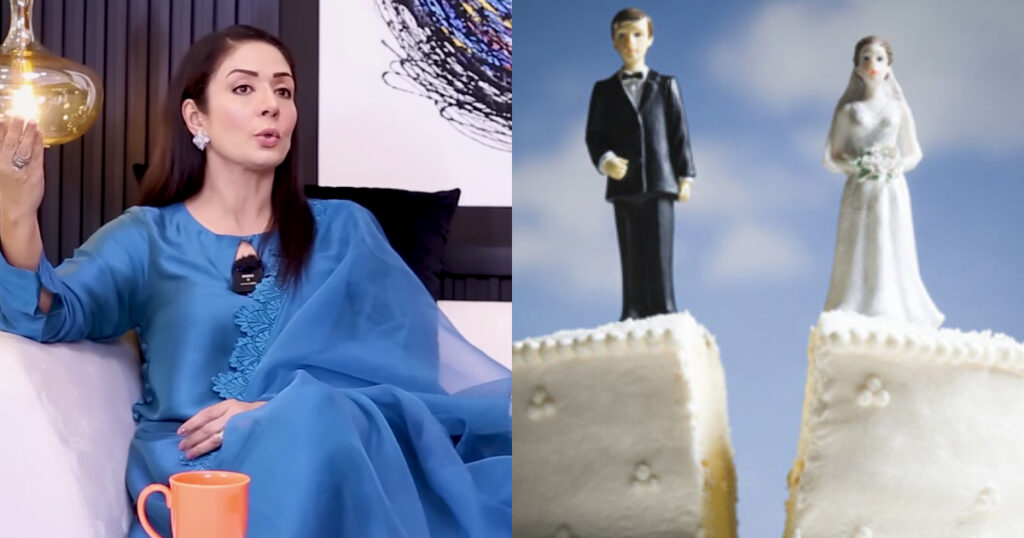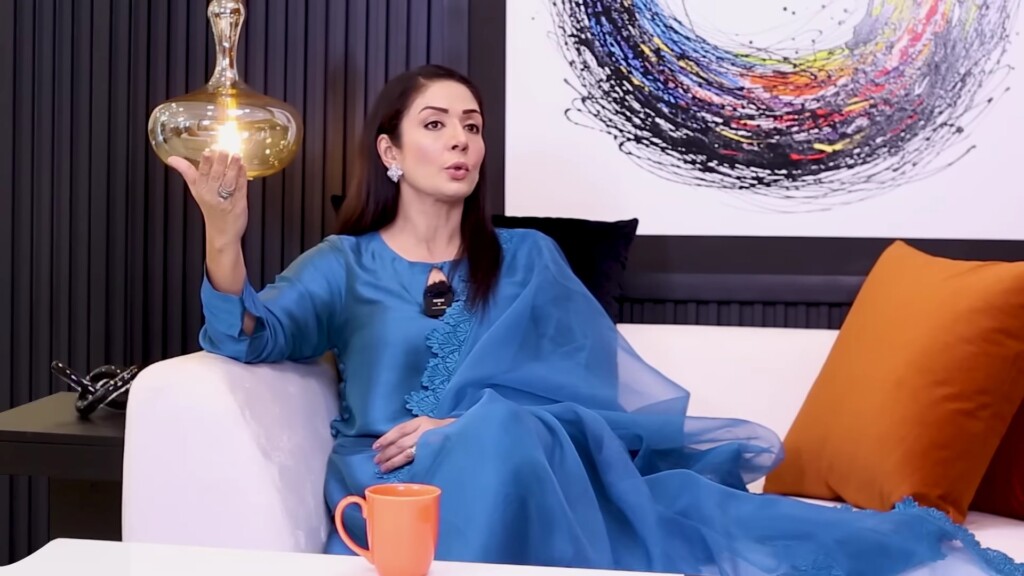
Veteran Pakistani actress Saima Qureshi, a household name in the television industry for decades, is once again in the spotlight after making bold remarks that have gone viral across social media. Known for her resilience as a single mother who raised three sons after divorce, Qureshi has never shied away from discussing sensitive social issues. Her recent comments, however, have sparked heated debate, particularly regarding her views on the rising divorce rate in Pakistan.
In her latest appearance on the FHM podcast, Saima Qureshi revisited some of her earlier controversial statements about women’s financial independence and men’s right to remarry, before sharing new insights on the struggles of modern marriages. Drawing from her own experiences, she expressed concern about the increasing number of divorces and argued that generational attitudes must change to ensure healthier, long-lasting relationships.

Saima Qureshi specifically pointed a finger at mothers, suggesting that some unintentionally contribute to the breakdown of their daughters’ marriages. According to her, once a girl is married, her mother should “calm down” and allow the couple to resolve issues independently. She emphasized that while mothers must intervene if their daughters face abuse or domestic violence, they should avoid encouraging them to leave their in-laws over minor disputes.
She explained, “Stand by your daughter if she is being abused, but if the problem is just with her in-laws, do not constantly push her to come back home. Let her learn to adjust.”
These remarks have stirred intense discussions online, with many praising her for addressing a sensitive yet important aspect of marital life, while others criticized her for placing responsibility on women rather than highlighting broader systemic issues.
Despite the backlash, Saima Qureshi’s comments reflect a long-standing cultural debate in Pakistan about the role of families, in-laws, and societal expectations in shaping marriages. Her perspective sheds light on how traditional support systems sometimes affect young couples, sparking much-needed dialogue on the balance between parental guidance and marital independence.
